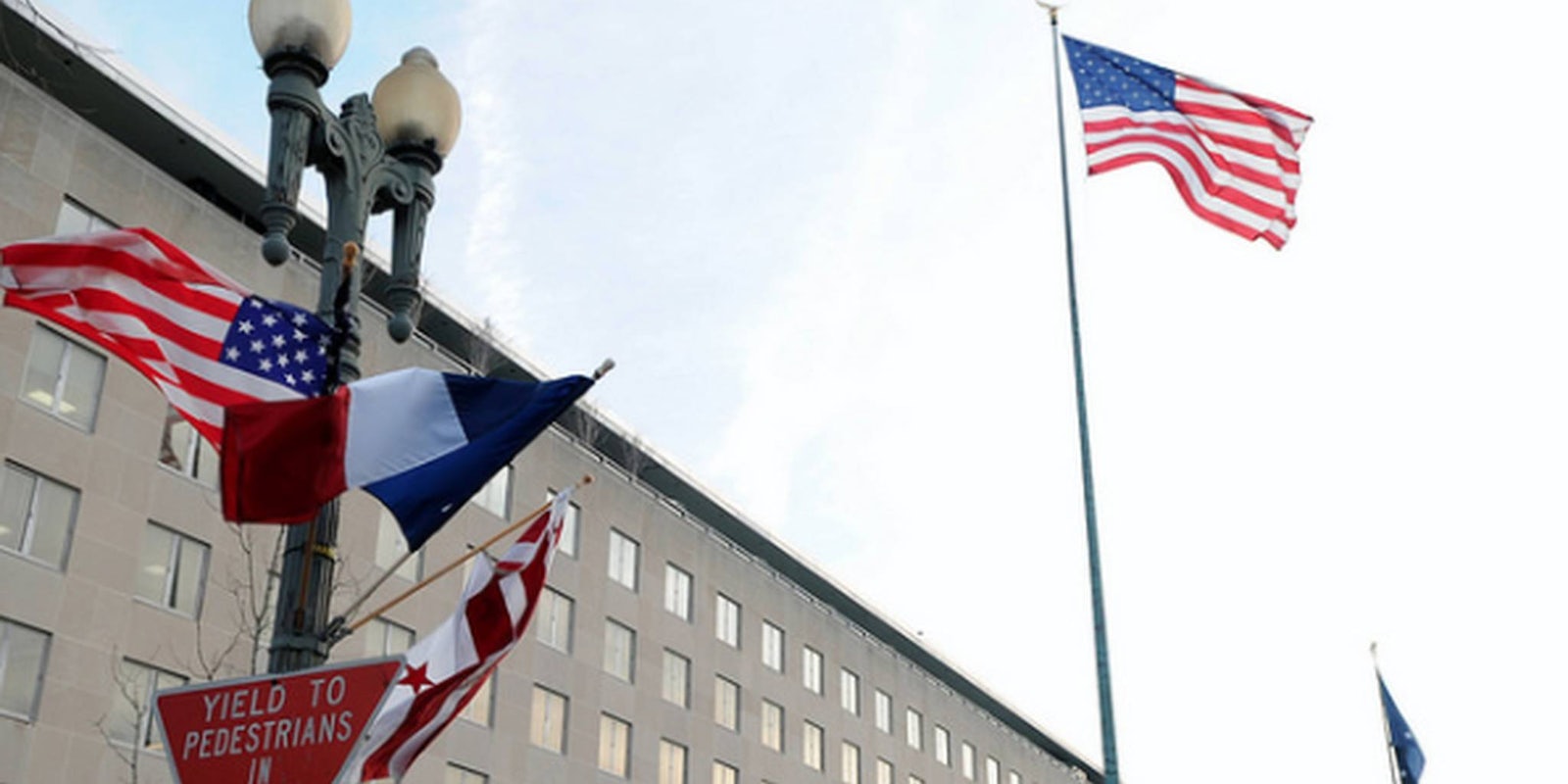Employees within the State Department are speaking out in criticism of President Donald Trump‘s executive order on immigration, according to a draft cable obtained by the Washington Post.
The leaked memo states that Trump’s travel ban on citizens of seven Muslim-majority countries and suspension of the U.S. refugee program would close America’s doors to 200 million legitimate travelers, a move the memo says runs counter to American values.
Trump would not meet his goal of protecting America from terrorist attacks through the executive order, the State Department employees stress. The travel ban would instead “sour relations” with the countries impacted by the ban, which include Iran, Somalia, Yemen, Syria, Iraq, Libya, and the Sudan.
The memo states that banning the travelers from the seven countries calls back to “some of the worst times in our history,” referring to U.S. immigration laws on national origin that were passed between the 1920s and 1960s. The writers also referred to President Franklin D. Roosevelt’s executive order that allowed for the internment of Japanese-Americans during World War II.
“Decades from now, we will look back and realize we made the same mistakes our predecessors: shutting borders in a knee-jerk reaction instead of setting up systems of checks that protect our interests and our values,” the memo reads.
The State Department employees predict that Trump’s restrictions on travel would further increase anti-American sentiment and have an “immediate and clear” humanitarian impact.
World leaders from Canada’s Prime Minister Justin Trudeau to Great Britain’s Foreign Minister Boris Johnson have roundly criticized Trump for his executive order that would suspend the entry of refugees and non-U.S. permanent residents of the seven affected countries.
The ban also applies to dual nationals who are not U.S. citizens; for example, it would bar a British citizen with dual citizenship in one of the seven countries. French Foreign Minister Jean-Marc Ayrault said that welcoming refugees was “a duty of solidarity.”
We will protect the rights and freedoms of UK nationals home and abroad. Divisive and wrong to stigmatise because of nationality
— Boris Johnson (@BorisJohnson) January 29, 2017
#RefugeesWelcome in #Turkey, the world’s largest refugee hosting country.
We’d happily welcome global talent not allowed back into #USA.
— Mehmet Simsek (@memetsimsek) January 29, 2017
Sens. John McCain (R-Ariz) and Lindsay Graham (R-S.C.) issued a joint statement in opposition of Trump’s executive order on immigration, arguing that the travel ban would put the U.S. in more risk, not less.
EO sends signal, intended or not, that US doesn’t want Muslims here- fear it may do more to help terrorist recruitment than improve security
— John McCain (@SenJohnMcCain) January 29, 2017
The State Department cable is expected to be signed by dozens of department employees. It would circulate through the agency’s Dissent Channel process, which was created in 1971 to allow agency employees to express dissent over White House policies on the Vietnam War without fear of retaliation.
According to the State Department’s stated policies on the Dissent Channel:
It is Department of State policy that all U.S. citizen employees, foreign and domestic, be able to express dissenting or alternative views on substantive issues of policy, in a manner which ensures serious, high-level review and response.
b. The State Department has a strong interest in facilitating open, creative, and uncensored dialogue on substantive foreign policy issues within the professional foreign affairs community, and a responsibility to foster an atmosphere supportive of such dialogue, including the opportunity to offer alternative or dissenting opinions without fear of penalty. The Dissent Channel was created to allow its users the opportunity to bring dissenting or alternative views on substantive foreign policy issues, when such views cannot be communicated in a full and timely manner through regular operating channels or procedures, to the attention of the Secretary of State and other senior State Department officials in a manner which protects the author from any penalty, reprisal, or recrimination.
c. Freedom from reprisal for Dissent Channel users is strictly enforced; officers or employees found to have engaged in retaliation or reprisal against Dissent Channel users, or to have divulged to unauthorized personnel the source or contents of Dissent Channel messages, will be subject to disciplinary action. Dissent Channel messages, including the identity of the authors, are a most sensitive element in the internal deliberative process and are to be protected accordingly.
The State Department circulated a Dissent Memo in June of 2016 that called for former President Barack Obama to authorize military strikes against President Bashar al-Assad of Syria.


